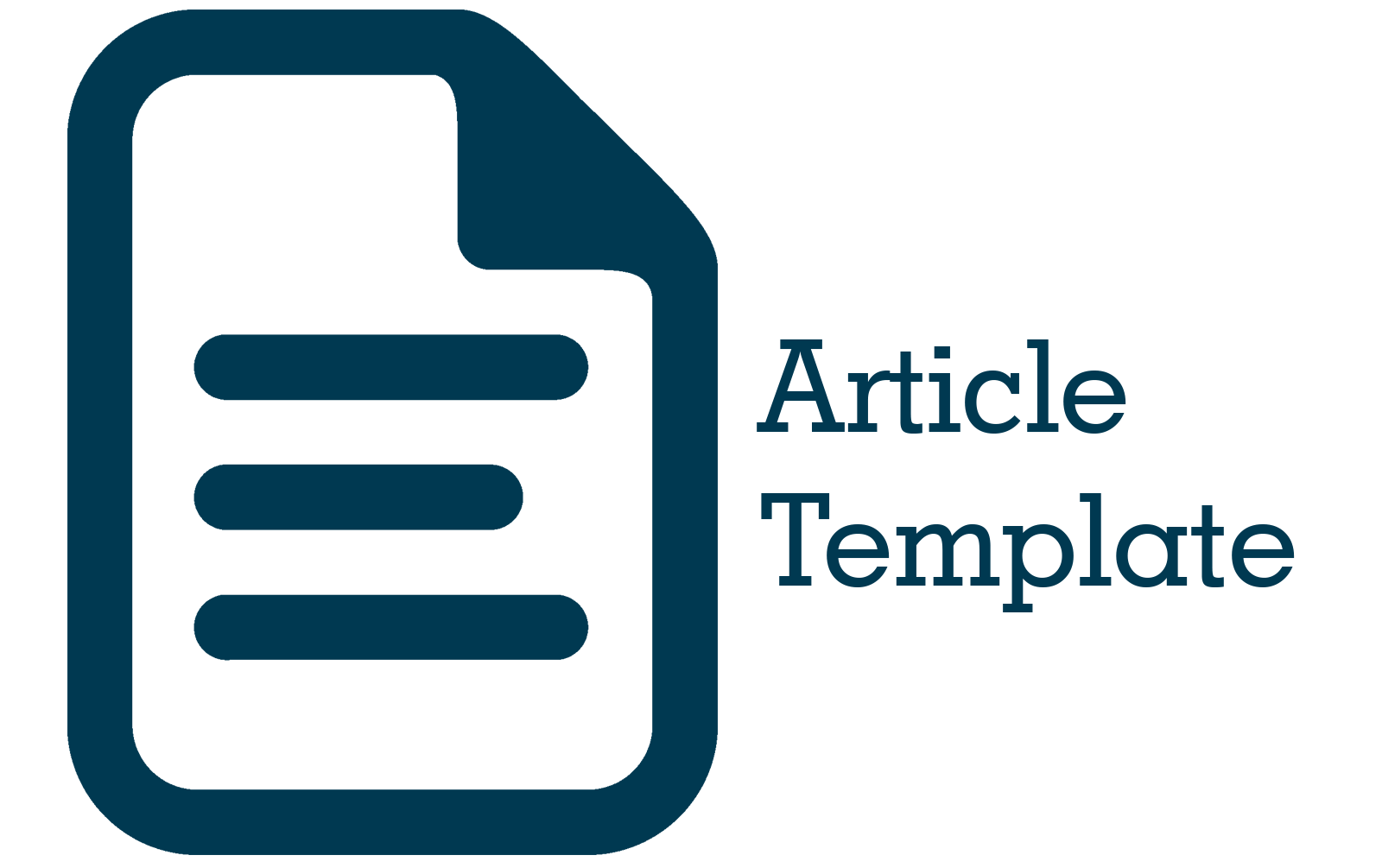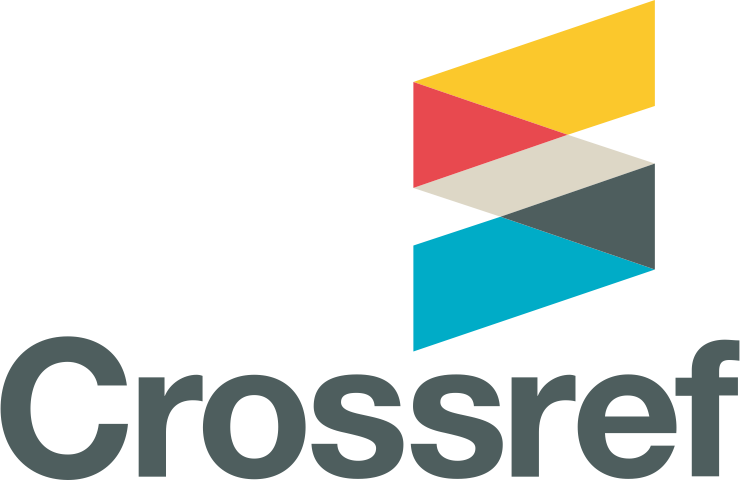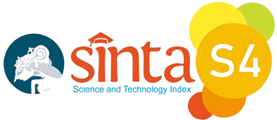Ekstraksi Fitur Produktivitas Dinamis berdasarkan Topik Artikel Ilmiah untuk Klasterisasi Peneliti
DOI:
https://doi.org/10.33633/tc.v20i2.4512Keywords:
Klasterisasi peneliti, Produktivitas, Topik Artikel Ilmiah, Publikasi, SitasiAbstract
Pengelompokkan peneliti seringkali menggunakan informasi tekstual yang terdapat pada artikel ilmiah peneliti, contohnya judul, abstrak, dan kata kunci sehingga menghasilkan kelompok peneliti dengan kemiripan informasi tekstual pada artikel ilmiah mereka. Pengelompokkan peneliti juga seringkali menggunakan jumlah publikasi dan sitasi sehingga menghasilkan kelompok peneliti yang memiliki jumlah publikasi dan sitasi yang cenderung sama. Berdasarkaan kedua metode di atas, penelitian ini mencoba untuk menganalisis penggunaan topik artikel ilmiah pada proses ekstraksi fitur produktivitas. Fitur ini merupakan fitur yang didapatkan melalui penghitungan kinerja peneliti berdasarkan jumlah publikasi dan sitasi. Hasil ekstraksi fitur akan digunakan untuk klasterisasi peneliti menggunakan metode K-Means++. Sebelum data peneliti diklasterisasi, terlebih dahulu data peneliti dianalisis untuk menghilangkan kemungkinan adanya outlier. Evaluasi hasil klaster dilakukan dengan mempertimbangkan nilai Sum Squared Error dan Silhouette. Hasilnya, klaster optimal didapatkan dengan nilai K sama dengan 8 dan nilai silhouette sama dengan 0.15396. Kemudian, hasil klaster dianalisis untuk dapat memberikan label terhadap masing-masing klaster dengan mempertimbangkan topik artikel ilmiah, jumlah publikasi dan jumlah sitasi.References
F. Xia, Z. Chen, W. Wang, J. Li, and L. T. Yang, “MVCWalker: Random walk-based most valuable collaborators recommendation exploiting academic factors,” IEEE Trans. Emerg. Top. Comput., vol. 2, no. 3, pp. 364–375, 2014, doi: 10.1109/TETC.2014.2356505.
D. Purwitasari, C. Fatichah, I. K. E. Purnama, S. Sumpeno, and M. H. Purnomo, “Inter-departmental research collaboration recommender system based on content filtering in a cold start problem,” 2017 IEEE 10th Int. Work. Comput. Intell. Appl. IWCIA 2017 - Proc., vol. 2017-Decem, pp. 177–184, 2017, doi: 10.1109/IWCIA.2017.8203581.
M. Ochsner, S. E. Hug, and H. D. Daniel, “Setting the stage for the assessment of research quality in the humanities. Consolidating the results of four empirical studies,” Zeitschrift fur Erziehungswiss., vol. 17, no. 6, pp. 111–132, 2014, doi: 10.1007/s11618-014-0576-4.
P. O. Seglen, “Why the impact factor of journals should not be used for evaluating research,” Br. Med. J., vol. 314, no. 7079, pp. 497–497, 1997, doi: 10.1136/bmj.314.7079.497.
J. E. Hirsch, “An index to quantify an individual’s scientific research output,” Proc. Natl. Acad. Sci. U. S. A., vol. 102, no. 46, pp. 16569–16572, 2005, doi: 10.1073/pnas.0507655102.
T. Y. Alkan, M. Gunay, and F. Ozbek, “Clustering of Scientist using Research Areas at Akdeniz University,” UBMK 2019 - Proceedings, 4th Int. Conf. Comput. Sci. Eng., pp. 580–584, 2019, doi: 10.1109/UBMK.2019.8907236.
D. Yu, W. Wang, S. Zhang, W. Zhang, and R. Liu, “Hybrid self-optimized clustering model based on citation links and textual features to detect research topics,” PLoS One, vol. 12, no. 10, pp. 1–21, 2017, doi: 10.1371/journal.pone.0187164.
G. Panagopoulos, G. Tsatsaronis, and I. Varlamis, “Detecting rising stars in dynamic collaborative networks,” J. Informetr., vol. 11, no. 1, pp. 198–222, 2017, doi: 10.1016/j.joi.2016.11.003.
H. Ma’rifah, A. P. Wibawa, and M. I. Akbar, “Klasifikasi Artikel Ilmiah Dengan Berbagai Skenario Preprocessing,” Sains, Apl. Komputasi dan Teknol. Inf., vol. 2, no. 2, p. 70, 2020, doi: 10.30872/jsakti.v2i2.2681.
A. M. Rukmi and I. M. Iqbal, “Using k-means++ algorithm for researchers clustering,” AIP Conf. Proc., vol. 1867, no. August, 2017, doi: 10.1063/1.4994455.
D. Purwitasari, C. Fatichah, S. Sumpeno, and M. H. Purnomo, “Ekstraksi Ciri Produktivitas Dinamis untuk Prediksi Topik Pakar dengan Model Discrete Choice,” J. Nas. Tek. Elektro dan Teknol. Inf., vol. 7, no. 4, pp. 418–426, 2018, doi: 10.22146/jnteti.v7i4.460.
P. M. Prihatini, I. K. Suryawan, and I. N. Mandia, “Metode Latent Dirichlet Allocation untuk Ekstraksi Topik Dokumen,” J. Log., vol. 17, no. 3, pp. 154–158, 2017, doi: 10.31940/logic.v17i3.604.
D. Zhang, T. Luo, and D. Wang, “Learning from LDA using deep neural networks,” Lect. Notes Comput. Sci. (including Subser. Lect. Notes Artif. Intell. Lect. Notes Bioinformatics), vol. 10102, pp. 657–664, 2016, doi: 10.1007/978-3-319-50496-4_59.
Y. Li and H. Wu, “A Clustering Method Based on K-Means Algorithm,” Phys. Procedia, vol. 25, pp. 1104–1109, 2012, doi: 10.1016/j.phpro.2012.03.206.
A. Barai (Deb) and L. Dey, “Outlier Detection and Removal Algorithm in K-Means and Hierarchical Clustering,” World J. Comput. Appl. Technol., vol. 5, no. 2, pp. 24–29, 2017, doi: 10.13189/wjcat.2017.050202.
R. Nainggolan, R. Perangin-Angin, E. Simarmata, and A. F. Tarigan, “Improved the Performance of the K-Means Cluster Using the Sum of Squared Error (SSE) optimized by using the Elbow Method,” J. Phys. Conf. Ser., vol. 1361, no. 1, 2019, doi: 10.1088/1742-6596/1361/1/012015.
F. Wang, H. H. Franco-Penya, J. D. Kelleher, J. Pugh, and R. Ross, “An analysis of the application of simplified silhouette to the evaluation of k-means clustering validity,” Lect. Notes Comput. Sci. (including Subser. Lect. Notes Artif. Intell. Lect. Notes Bioinformatics), vol. 10358 LNAI, no. July, pp. 291–305, 2017, doi: 10.1007/978-3-319-62416-7_21.
A. R. Mamat, F. S. Mohamed, M. A. Mohamed, N. M. Rawi, and M. I. Awang, “Silhouette index for determining optimal k-means clustering on images in different color models,” Int. J. Eng. Technol., vol. 7, pp. 105–109, 2018, doi: 10.14419/ijet.v7i2.14.11464.
M. A. Syakur, B. K. Khotimah, E. M. S. Rochman, and B. D. Satoto, “Integration K-Means Clustering Method and Elbow Method for Identification of the Best Customer Profile Cluster,” IOP Conf. Ser. Mater. Sci. Eng., vol. 336, no. 1, 2018, doi: 10.1088/1757-899X/336/1/012017.
Downloads
Published
Issue
Section
License
Copyright (c) 2021 Diana Purwitasari

This work is licensed under a Creative Commons Attribution-NonCommercial 4.0 International License.
License Terms
All articles published in Techno.COM Journal are licensed under the Creative Commons Attribution-NonCommercial 4.0 International (CC BY-NC 4.0). This means:
1. Attribution
Readers and users are free to:
-
Share – Copy and redistribute the material in any medium or format.
-
Adapt – Remix, transform, and build upon the material.
As long as proper credit is given to the original work by citing the author(s) and the journal.
2. Non-Commercial Use
-
The material cannot be used for commercial purposes.
-
Commercial use includes selling the content, using it in commercial advertising, or integrating it into products/services for profit.
3. Rights of Authors
-
Authors retain copyright and grant Techno.COM Journal the right to publish the article.
-
Authors can distribute their work (e.g., in institutional repositories or personal websites) with proper acknowledgment of the journal.
4. No Additional Restrictions
-
The journal cannot apply legal terms or technological measures that restrict others from using the material in ways allowed by the license.
5. Disclaimer
-
The journal is not responsible for how the published content is used by third parties.
-
The opinions expressed in the articles are solely those of the authors.
For more details, visit the Creative Commons License Page:
? https://creativecommons.org/licenses/by-nc/4.0/












